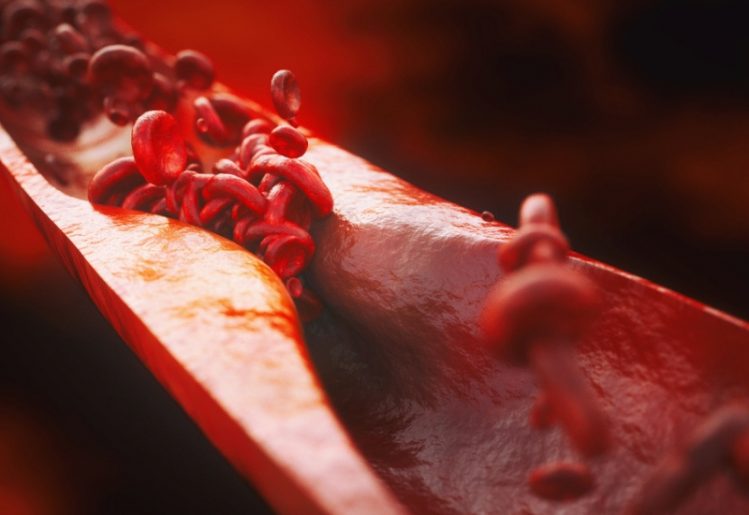High cholesterol has long been recognized as a risk factor for cardiovascular disease. For many years, the theory has been that the quantity of dietary cholesterol (foods containing cholesterol) consumed was directly related to high levels of cholesterol in the blood, contributing to heart disease risk. However, more recent research has disputed this theory, sparking an ongoing controversy. According to new AHA guidelines, based on a review of current research, there is no connection between cholesterol and heart health, but taking steps to protect your cardiovascular health is still advised.
The Link Between Cholesterol and Heart Health
 To understand the latest determination from the American Heart Association, it’s necessary to explore the causes of heart disease and the link between cholesterol and heart health. Coronary heart disease is the result that coronary artery disease has on the body, proving that a problem in one part of the cardiovascular system can lead to problems elsewhere in the body. The coronary arteries are responsible for delivering blood to the heart, but plaque build-up in these arteries inhibits that process. As a result, the heart doesn’t receive the blood flow it needs to function properly.
To understand the latest determination from the American Heart Association, it’s necessary to explore the causes of heart disease and the link between cholesterol and heart health. Coronary heart disease is the result that coronary artery disease has on the body, proving that a problem in one part of the cardiovascular system can lead to problems elsewhere in the body. The coronary arteries are responsible for delivering blood to the heart, but plaque build-up in these arteries inhibits that process. As a result, the heart doesn’t receive the blood flow it needs to function properly.
This condition is commonly known as ischemia and it can occur in one of two ways. Chronic ischemia occurs over a longer period, allowing plaque to build up on the artery walls over time and gradually inhibiting blood flow to the heart. This process often starts in childhood and progresses through adolescence, even though it may not be diagnosed until adulthood. Alternatively, acute ischemia occurs when plaque suddenly breaks away from the artery wall and causes a blockage, or clot, which abruptly stops blood flow to the heart.
The condition may be caused by low HDL, or good cholesterol levels, in addition to hypertension, diabetes and smoking. Pregnant women and adults over 45 are also more likely to develop coronary artery disease. In the past, it was believed that consuming foods high in cholesterol was another risk factor, but recent news from the AHA may dispel that idea as myth.
AHA Determines There is No Link Between Dietary Cholesterol and Heart Health
In the past, the American Health Association did link dietary cholesterol and heart health, advising that cholesterol intake should be limited to 300 milligrams per day, but new research has prompted the organization to redact that restriction. A group of researchers, led by Jo Ann S. Carson, Ph.D., who serves on the AHA’s board of nutrition, recently reviewed the nutrition guidelines that the AHA publishes as a means of reducing cardiovascular disease risks. Their findings prompted Dr. Carson and her co-authors on the study to recommend eliminating the cholesterol restrictions.
The recommendation to edit cholesterol restrictions from the dietary recommendations was the result of combing through existing research to find a correlation between cholesterol and heart health. The researchers noted that they could not find a link between high cholesterol intake and higher LDL (bad cholesterol) levels in the blood.
Instead of limiting cholesterol intake, the new guidelines recommend adopting a healthier overall diet that doesn’t rely on counting numbers. This is partly because certain eating habits may not be as unhealthy as they seem. For example, eating at least one egg per day, a food that’s high in cholesterol, can reduce your risks of experiencing a stroke. For this reason, the best course of action is to focus on consuming a healthy diet that relies on foods that are rich in polyunsaturated fats instead of those full of saturated fats. Foods high in saturated fats are also high in cholesterol, so reducing your consumption of these foods will help to naturally reduce your dietary cholesterol intake. As a result, your LDL blood levels will be lower without having to count how many milligrams of cholesterol you consume each day.
What Can You Do to Lower Your Risks of Heart Disease?
Add Heart-Healthy Foods to Your Diet
One of the most important things you can do for your heart is to give it the sustenance it needs. This means adopting a healthier diet that relies on plant-based foods, whole grains and lean-cut meats. Healthy fats, legumes and low-fat dairy products can round off a heart-healthy diet.
Reduce Your Intake of Unhealthy Substances
 While alcohol and soda consumption should be very limited in order to protect your heart, you should also be sure to stay away from other sugary foods and beverages. Salt consumption should also be reduced or eliminated. Doctors additionally recommend limiting how many processed carbohydrates you consume on a daily basis.
While alcohol and soda consumption should be very limited in order to protect your heart, you should also be sure to stay away from other sugary foods and beverages. Salt consumption should also be reduced or eliminated. Doctors additionally recommend limiting how many processed carbohydrates you consume on a daily basis.
Take a Supplement
You can give your heart an extra supply of vitamins and nutrients by adding a daily supplement that provides the natural ingredients your body needs to fight against free radicals, while also helping to keep your cardiovascular system in good condition. Adding a supplement of this quality to a healthy diet will maximize the benefits your lifestyle changes have on your heart.
Quit Using Tobacco
While smoking has very negative effects on the cardiovascular system, tobacco in other forms can also restrict blood flow. It can also damage your heart and other organs by inhibiting the amount of oxygen transported in the blood supply. This is why many smokers and tobacco users have hypertension and an increased heart rate.
Physical Activity is Important
At the very least, you should attempt to get 30 to 60 minutes of moderate to high intensity exercise every day in order to maintain a healthy heart. This doesn’t mean you have to spend all of that time in the gym. In fact, it’s better for your heart and the other muscles in your body if you engage in a broad range of activities. For example, you can go bicycling one day and swimming on the following day. If you find the time to get more than an hour of exercise each day, you’ll be helping your heart to get stronger that much faster.
Get Enough Sleep
Sleeping doesn’t just help your mind rest. It helps your heart rest and, during sleep, your muscles heal and build mass. If you have trouble falling asleep or staying asleep, look for ways to make your bedroom more relaxing. Try replacing your bedding, wearing a sleep mask and ear plugs, or listening to relaxing music. Alternately, taking a supplement like melatonin could help you to fall asleep sooner and get higher-quality sleep, in cases of occasional sleeplessness. If you’re still having trouble falling asleep, ask your doctor for help.


